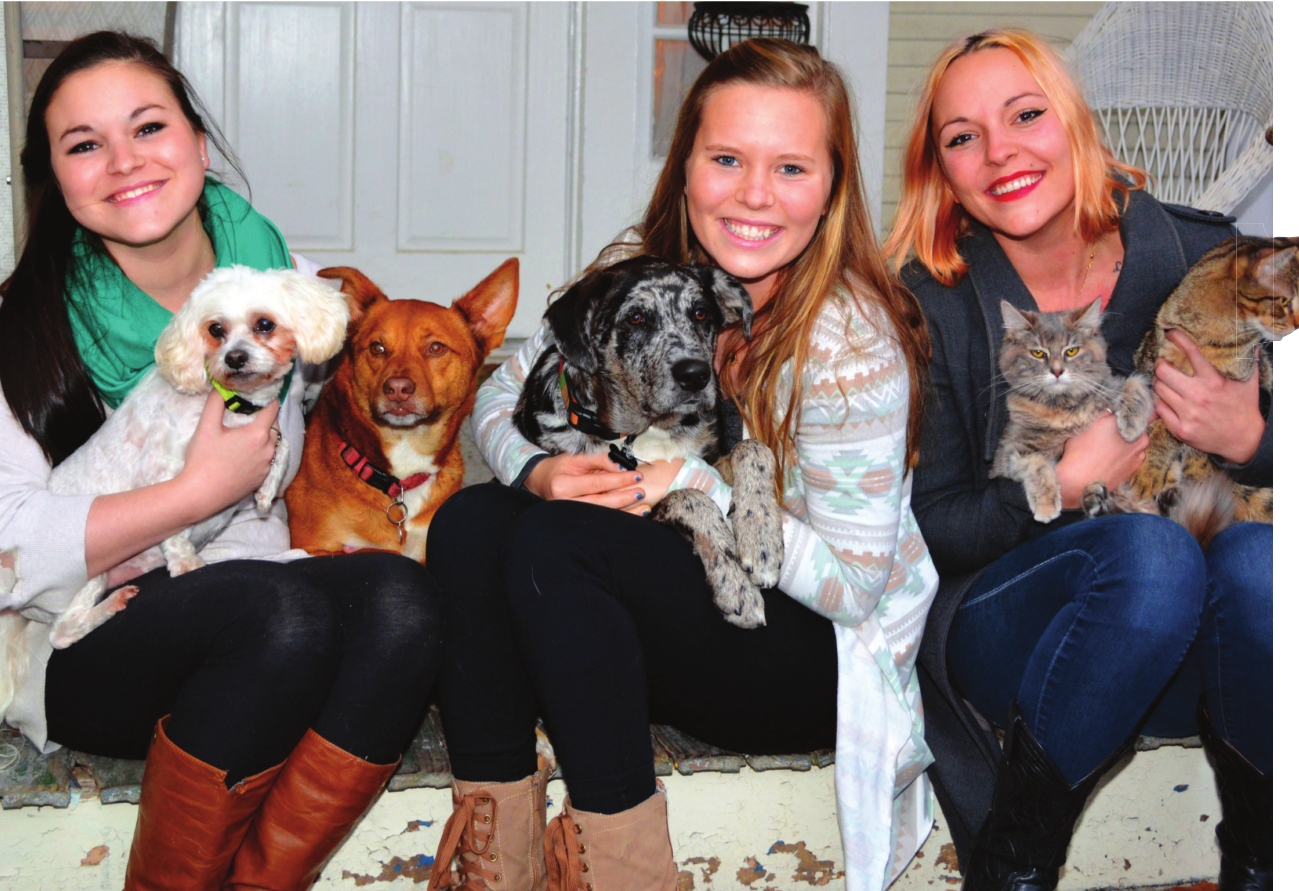
Sage advice for parents and students from those who’ve been there
More than 20,000 Louisiana high school graduates will enter college this fall.
For families and graduates, that experience is one of the milestones of their lives together. Plenty of preparation has gone into making a smooth transition, but it’s still a bumpy ride for many families – especially the first time.
“I remember when my first one left, I cried all the way home, even though she was just at Northwestern State University, an hour away,” said Laura Hughes, a speech pathologist and veteran of three college sendoffs.
“The second child was easier because she was going to live with her sister at NSU,” Hughes said. But, “She was hanging out with kids that were years ahead of her instead of trying to figure out things on her own. I recommend that if they struggle in their first semester away from home, you need to snatch them home quickly and try and let them mature a little before sending them back.”
“When our ‘baby’ left, I cried once again as I became the typical empty nester,” Hughes said. Hughes and her husband, Carlton, “quickly readjusted to the empty nest and have really enjoyed reconnecting with each other. I would suggest that as parents adjust to kids leaving, you spend quality time as a couple along the way so you remember why you married your spouse in the first place.”
Things worked out fine for the Hughes family. Rachel, 25, received a graduate degree and works as a teacher at 81st Street Early Childhood Education Center. Meaghan, 20, is in graduate school at Louisiana Tech University, and Ansley, 27, is lead singer for the band Hydrogen Child, a songwriter and a nanny.
Common sense dictates that managing money and time should be learned before no one is supervising.
“Start saving even before you have kids because it still won’t be enough,” Hughes said. “Teach your kids how to cook and budget money. Put your kids to work before they go to college. They need to work in college. They need to be working and developing those life skills as soon as possible.”
“As is the case with fishing, if you start early and are patient, you are bound to catch something” Dr. Katherine Wickstrom said. Wickstrom and her husband, Kevin Jones, are associate professors in psychology at LSU-Shreveport. They have two children, Nick and Ella, who will both leave for college in the next few years.
“Look into a college savings program such as the LOSFA START program [Louisiana Office of Student Financial Assistance, Student Tuition Assistance and Revenue Trust Program]: www.startsaving.la.gov/ savings/index.jsp.,” Wickstrom said.
“Some of us are masters of
managing our time, while others have the luxury of being laid back and
fancy free in ‘vacation mode’ most of the time,” Wickstrom said. “While
the second trait is one that causes much less stress in our lives, it
may also be the one that need some re-calibration in the college
setting.”
“If you
walk across campus and find yourself constantly on your phone, you will
miss out on opportunities to interact with and meet new people around
you. If you send your professor an e-mail, which was obviously sent as a
text from your phone and includes chat shorthand, acronyms and/or
emojis, he or she will be far from impressed,” Wickstrom said.
“Get
to class on time; in fact, be early. Turn off your phone during class.
At the very least, turn all sounds and vibrations off. If you have a
pending emergency and must have your phone on [vibrate], then tell your
professor before class begins. Communicate with your professors in a
professional, respectful manner, in and out of class,” Wickstrom said.
“These ‘soft’ or social skills are the ones that professors often
remember first about a person when asked to write letters of reference.”
The
Rev. Betsy Eaves, pastor of St. Luke’s United Methodist Church, spent
almost 30 years advising college students, first in campus ministry then
as chaplain of Centenary College. She and husband Clay sent two
children to college, Emily and Ashley. She advises parents to leave
things alone at home for a while.
“You
are not the only ones adjusting,” Eaves said. She sometimes comforted
students who went back home and scarcely recognized the place. One son’s
room was used to display his mother’s doll collection. A daughter was
driving home anticipating things as they had always been and discovered
the decorations had been changed. She called Eaves in tears because the
Christmas lights were changed to all white.
“If
you are going to change a holiday tradition, discuss it with them. Some
are more sentimental than others,” Eaves said. Tears are frequent for
students learning to be on their own.
“You
may get a phone call, and they are just distraught. You agonize over it
all night,” said Eaves. “You call them, and they are fine – they have
moved on.” They just wanted to tell their parent what happened, not have
it fixed.
“It’s
amazing how much parents do for their child – they actually cripple
them. Give them responsibilities and some decision-making
opportunities,” Eaves said. “We always want them to experience the
consequences.”
“College
is the real world, but there is still some support there. You are
launching what you have worked so long for,” Eaves said. “Here it is –
take off!” – Kathleen Ward